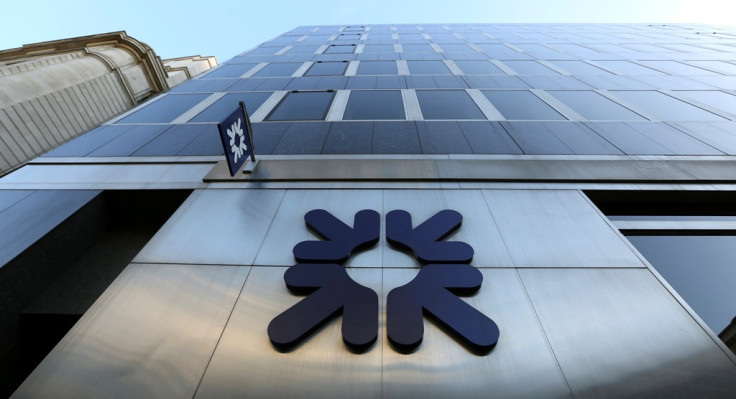RBS shares might go up but it's irresponsible to play markets with taxpayer's money

There may have been a case for selling shares in RBS at some point prior to the general election when its share price edged above the 400p mark, but there was much more at stake back then and George Osborne did the sensible thing and focused on Lloyds.
Now he must concede that the shares will be sold off at considerably less than the 500p the government paid for them. The shares have in fact started to rise since the Chancellor announced he will start selling them. They were trading at 361.5p today, up a few percent on the news.
The bank itself understands the need to get the sale going sooner rather than later: with 80% of it held by the state, it makes paying bonuses extremely uncomfortable, for example. Although it always seems like an excuse created by bankers to justify their salaries, RBS may be unable to attract top executives it seems. This will change once it's privatised and its share price may rise some more as a result.
What is perhaps harder to predict is how the mammoth offloading of non-core assets and overseas operations attached to RBS's bloated corporate banking interests will play out. The bank's former boss Stephen Hester has done a large amount of the heavy financial engineering in this respect, but current CEO Ross McEwan is still faced with exiting from some £166bn of assets.
RBS's US branches division, Citizens Bank, accounts for £72bn, while its loss-making Corporate and Institutional Bank division (CIB) is worth £56bn. RBS also intends to float of branches under the William and Glyn brand scheduled for 2016. But just carrying this out will cost £1.5bn.
Then there's the fines, which RBS seems to had more than its fair share of. The rest of its financial irregularities can be accounted for in property write downs, redundancies, accounting for businesses sold under par – and don't forget its PPI provisions.
Mark Taylor, Dean of Warwick Business School and Professor of Finance, told IBTimes UK: "RBS losses are mainly write-offs, fines, and one-off charges. Were it not for those they would have been in the black already. Don't forget there's a lot of profitability in banking."
The slow restructuring of RBS will doubtless result in a recovery in the bank's share price at some point in time. Shares go up but can also go down. Nobody has yet figured out how to reliably make money by playing the market and it would be irresponsible to try to do so with taxpayer money.
Sam Bowman, deputy director of the Adam Smith Institute told IBTimes UK: "My basic view is that markets are good at pricing assets (better than anything else, anyway) and that includes expectations of future performance. If traders expect RBS to be worth £10bn more next year than it's worth now, they'll bid up the share price until it's approximately that much, minus risk.
"So we shouldn't expect that holding on to the shares will make them appreciate in value by any significant amount – they're just as likely to fall in value. That means sell them all off as soon as possible, regardless of the profits or losses. There's just no reason to think the profits would be higher if we held onto them for longer."
So far, it is understood the structure of the sale will be approached in two stages, reported the BBC. There could be a "Tell Sid" British Gas-style retail offer to the public (Lloyds is slated for a retail offering soon) but perhaps more likely is a sale to institutions such as pension funds.
Reuters reported that a first sale of RBS shares will happen in September in an offering to institutional investors and that it will certainly be done at a loss.
However, there is apparently interest in the shares from institutions here and in the US. RBS is thought to be going cheap with its market value currently just 0.8 times that of its assets.
Osborne has said it will take "some years" to sell the entire stake.
"With such a complex investment case, we have to start with institutions, but I see no reason why ordinary investors – in other words members of the public – should not take part in due course," he said.
© Copyright IBTimes 2025. All rights reserved.






















